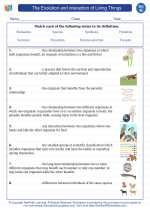Reproductive Organs
The reproductive system is a collection of organs in the human body that work together to produce offspring. In males, the primary reproductive organs are the testes, while in females, the primary reproductive organs are the ovaries. These organs are responsible for producing and releasing gametes (sperm in males, eggs in females) and also play a role in the production of sex hormones.
Male Reproductive Organs
The primary male reproductive organs are the testes. The testes are responsible for producing sperm and the male sex hormone, testosterone. Sperm produced in the testes travels through a series of ducts, including the epididymis, vas deferens, and ejaculatory duct, before being released from the body through the urethra during ejaculation.
Female Reproductive Organs
The primary female reproductive organs are the ovaries. The ovaries are responsible for producing eggs and the female sex hormones, estrogen, and progesterone. Each month, an egg is released from one of the ovaries during ovulation and travels through the fallopian tubes to the uterus. If the egg is fertilized by sperm, it may implant in the lining of the uterus and develop into a fetus. If the egg is not fertilized, it is shed along with the uterine lining during menstruation.
Study Guide
- What are the primary male reproductive organs?
- What are the primary female reproductive organs?
- What is the function of the testes in males?
- What is the function of the ovaries in females?
- Describe the process of sperm production and release in males.
- Describe the process of egg production and release in females.
- What are the hormones produced by the male and female reproductive organs?
◂Science Worksheets and Study Guides Eighth Grade. The Evolution and interaction of Living Things

 Worksheet/Answer key
Worksheet/Answer key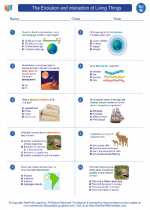
 Worksheet/Answer key
Worksheet/Answer key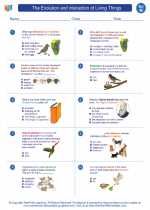
 Worksheet/Answer key
Worksheet/Answer key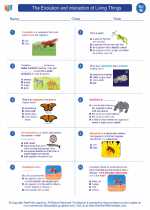
 Vocabulary/Answer key
Vocabulary/Answer key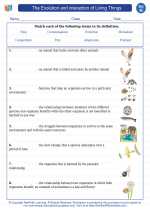
 Vocabulary/Answer key
Vocabulary/Answer key